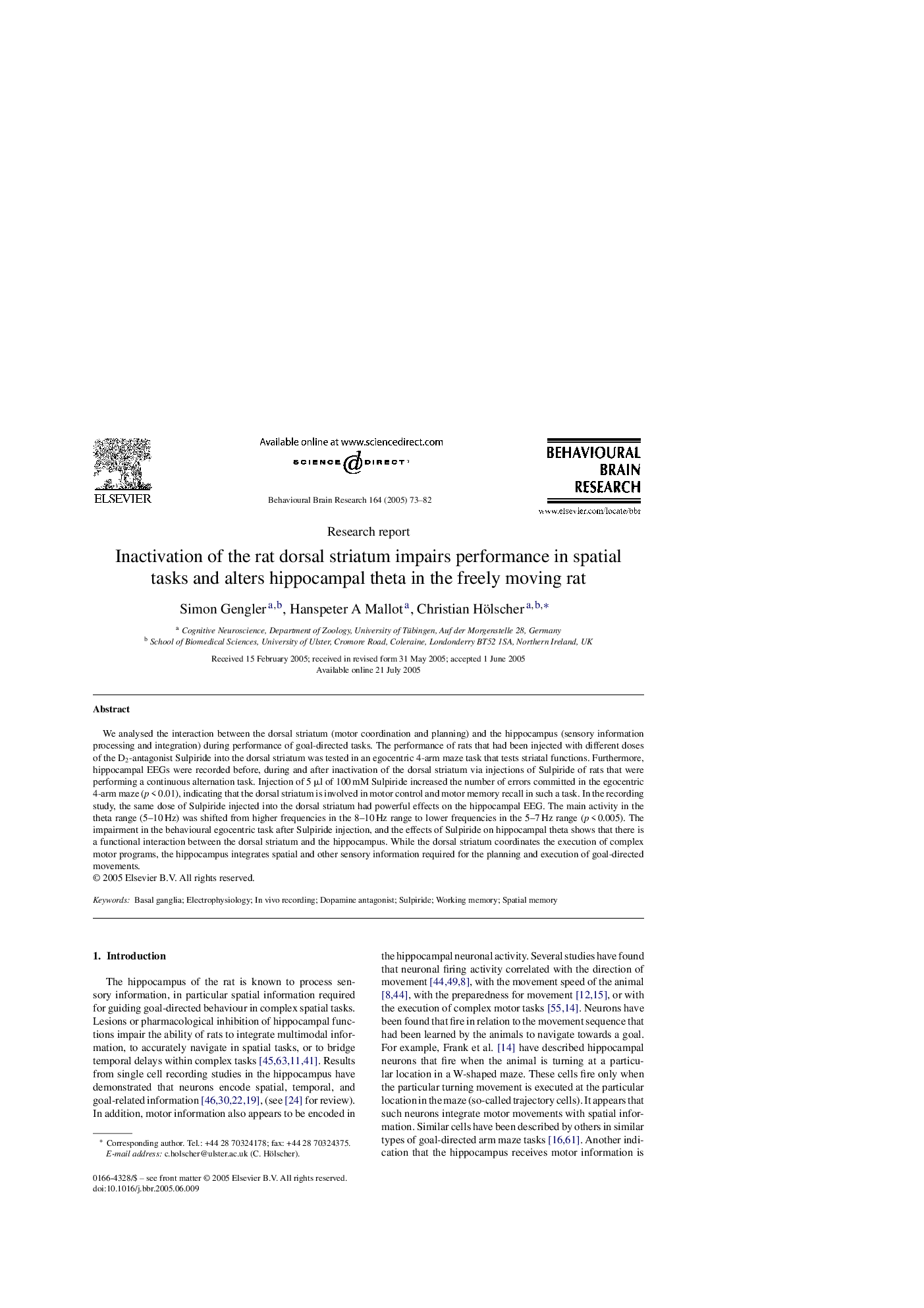| Article ID | Journal | Published Year | Pages | File Type |
|---|---|---|---|---|
| 9406530 | Behavioural Brain Research | 2005 | 10 Pages |
Abstract
We analysed the interaction between the dorsal striatum (motor coordination and planning) and the hippocampus (sensory information processing and integration) during performance of goal-directed tasks. The performance of rats that had been injected with different doses of the D2-antagonist Sulpiride into the dorsal striatum was tested in an egocentric 4-arm maze task that tests striatal functions. Furthermore, hippocampal EEGs were recorded before, during and after inactivation of the dorsal striatum via injections of Sulpiride of rats that were performing a continuous alternation task. Injection of 5 μl of 100 mM Sulpiride increased the number of errors committed in the egocentric 4-arm maze (p < 0.01), indicating that the dorsal striatum is involved in motor control and motor memory recall in such a task. In the recording study, the same dose of Sulpiride injected into the dorsal striatum had powerful effects on the hippocampal EEG. The main activity in the theta range (5-10 Hz) was shifted from higher frequencies in the 8-10 Hz range to lower frequencies in the 5-7 Hz range (p < 0.005). The impairment in the behavioural egocentric task after Sulpiride injection, and the effects of Sulpiride on hippocampal theta shows that there is a functional interaction between the dorsal striatum and the hippocampus. While the dorsal striatum coordinates the execution of complex motor programs, the hippocampus integrates spatial and other sensory information required for the planning and execution of goal-directed movements.
Keywords
Related Topics
Life Sciences
Neuroscience
Behavioral Neuroscience
Authors
Simon Gengler, Hanspeter A Mallot, Christian Hölscher,
